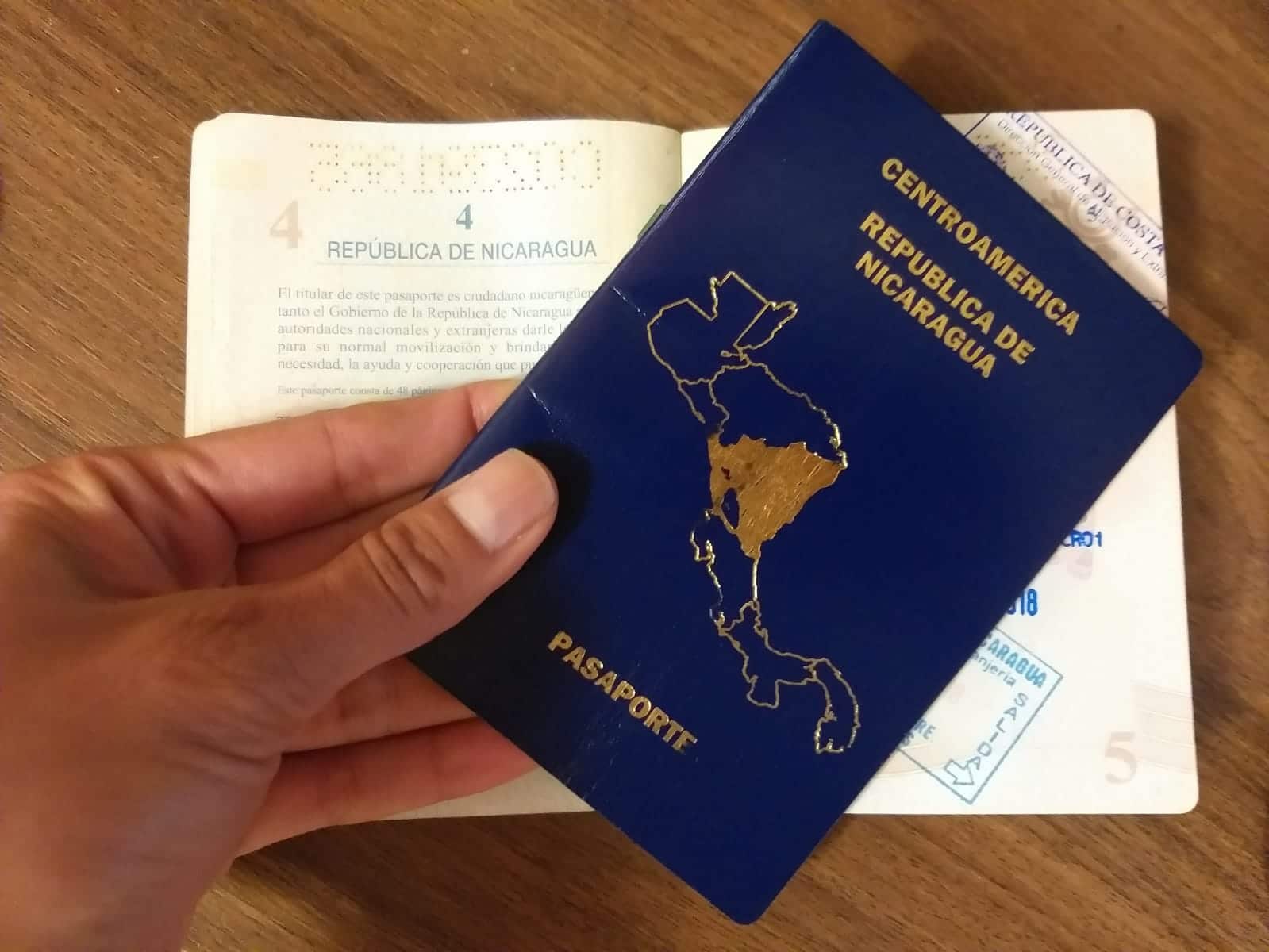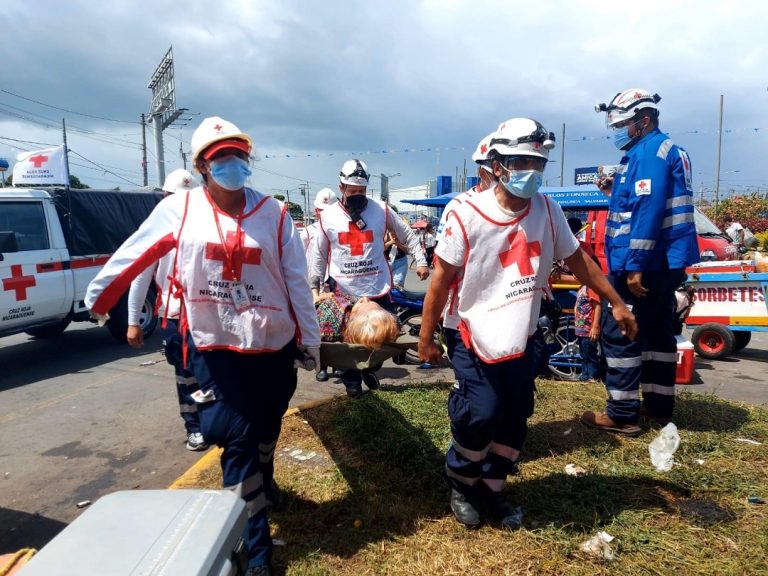3 de junio 2023

Nicaragua: Public Employees Hindered from Traveling to USA

PUBLICIDAD 1M
PUBLICIDAD 4D
PUBLICIDAD 5D
The loss of humanitarian autonomy in Nicaragua.

Red Cross lifeguards rescue a citizen in a procession in Managua. Photo: Facebook Red Cross
On June 2, 2023, the National Assembly, controlled by the Daniel Ortega-Rosario Murillo dictatorship, approved the so-called White Cross Law. This law was created after Sandinista legislators repealed the autonomy of the Red Cross in Nicaragua on May 10. The regime's argument that the Nicaraguan Red Cross "violated" its impartiality by attending to the wounded during the April 2018 protests has no logical basis. The Ortega-Murillo dictatorship has gone beyond what is seen in other autocracies around the world by abrogating the presence of a national Red Cross entity, ignoring international treaties and agreements that the International Committee of the Red Cross (ICRC) and the International Federation of Red Cross and Red Crescent Societies (IFRC) have established.
Although the decision to create a “White Cross law” may seem like an attempt to fix their mistake, it does not solve the underlying problem. The Nicaraguan Red Cross needs to recover its capacity to operate in Nicaragua under the principles of neutrality that correspond to it according to international humanitarian law. The Red Cross is the most important independent humanitarian organization in emergency situations, and it carefully protects the use of its emblem. Creating a new emblem, in this case a White Cross, does not guarantee that Nicaragua will have a humanitarian organization with the neutrality of the Red Cross.
The hasty White Cross law also appears to be an attempt by the Ortega-Murillo regime to maintain a relationship with international humanitarian agencies. These agencies prioritize Civil Protection as their raison d'être. Therefore, when any state does not cooperate in ensuring the neutrality of its national implementing bodies, a conflict is generated between the principle of neutrality and the objective interest of these agencies to maintain a presence in the country even in extreme situations. It is possible to speculate that the International Red Cross would be willing to have a technical collaboration relationship with a national entity that has another name and does not use its Red Cross emblem but is ready to respond to emergency situations.
It is imperative for the ICRC and IFRC to reassess their collaboration with the "White Cross," the organization now responsible for continuing the work of the former Nicaraguan Red Cross. The concern lies in the likelihood of persisting biases within this new organization. In the interest of protecting the most vulnerable Nicaraguans, it would not be surprising if the ICRC decides to accept the confiscation of the assets of its former Nicaraguan counterpart, which had some financial autonomy but maintained a close cooperative relationship with international partners.
The Red Cross operates under critical treaties, including the Geneva Conventions of 1949, which establish guidelines for humanitarian treatment during armed conflicts. Supplementary protocols were adopted in 1977, accompanied by the Statutes of the International Red Cross and Red Crescent Movement in 1986, outlining the framework for cooperation between the ICRC, IFRC, and National Red Cross and Red Crescent Societies. In the realm of international humanitarian law, the principle of Civil Protection holds paramount importance in the face of conflicts, natural disasters, and man-made crises. Based on these treaties, international humanitarian organizations strive to maintain communication and relationships with state entities even during severe political crises or armed conflicts.
The issue of neutrality within the Nicaraguan Red Cross has long been complex. Since Ortega's rise to power, the Ministry of the Interior has manipulated it for political purposes. Additionally, the regime enacted reforms to Law 337, the Law of the National System for the Prevention, Mitigation, and Attention to Disasters (SIPARED). In my article "Politicization of Risks," published in Confidencial in October 2018, I exposed the Ortega-Murillo dictatorship's agenda to dismantle any independent organizations that citizens could turn to during emergencies. This cruel and calculated plan prioritizes the regime's perpetuation over the well-being and vulnerability of the poorest Nicaraguans, who suffer the most during emergencies. It is evident that the dictatorship has no moral boundaries when it comes to consolidating its control in all spheres, be it public, private, or even humanitarian.
The author is a former Secretary General of the Ministry of Defense and former Director of Civil Protection.
PUBLICIDAD 3M
Politólogo, académico y activista político nicaragüense. Fue secretario general del Ministerio de Defensa y director de Protección Civil durante la Presidencia de Enrique Bolaños. Es codirector fundador del Instituto de Liderazgo de la Sociedad Civil. Miembro de la opositora Unidad Nacional Azul y Blanco, exprecandidato presidencial, excarcelado político y desterrado por la dictadura orteguista.
PUBLICIDAD 3D